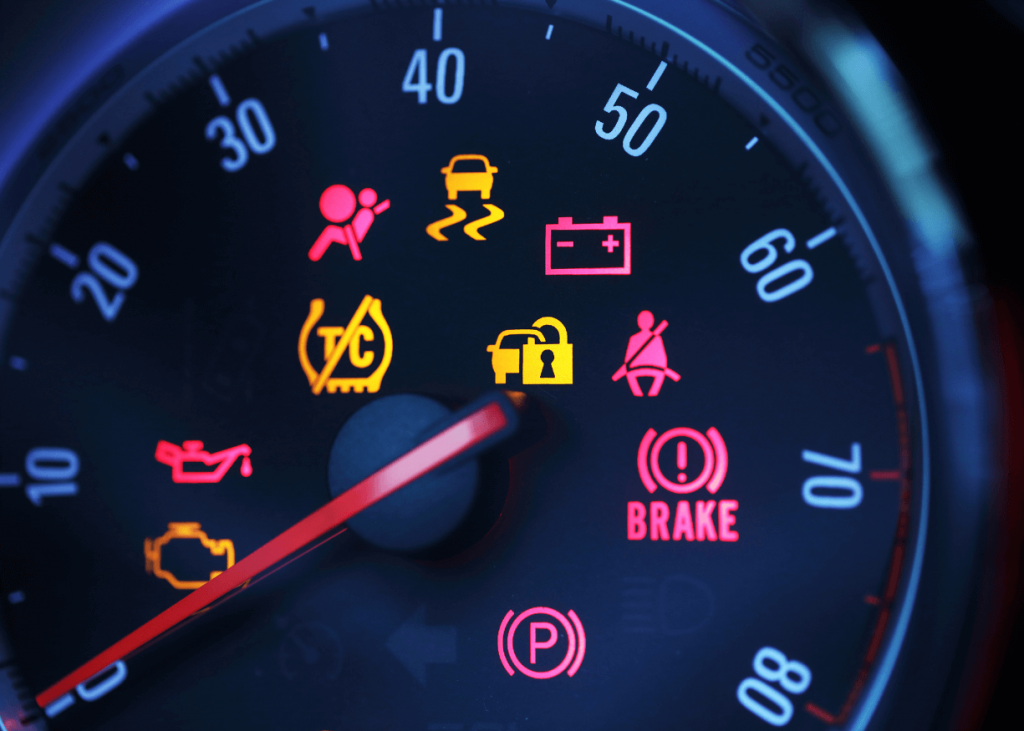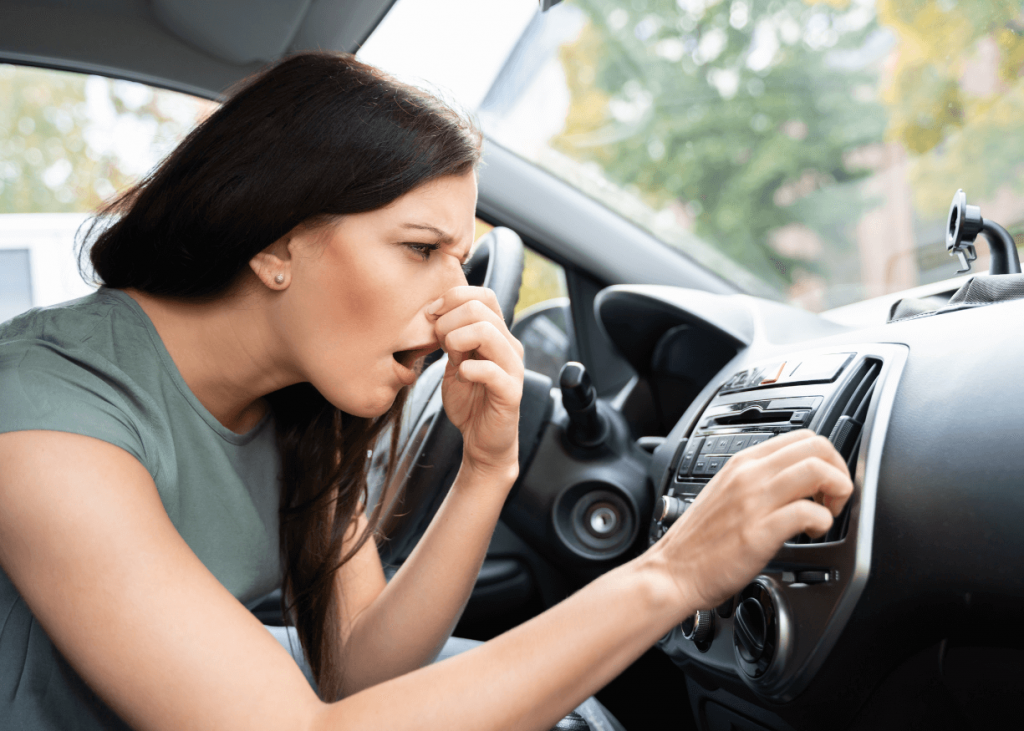Your car is basically like that friend who drops hints about their birthday for weeks before you finally get it. Except instead of wanting cake and presents, your car is desperately trying to tell you it needs some TLC before it leaves you stranded on the 405 during rush hour. And trust me, that’s not a conversation you want to have with your boss.
The thing is, cars don’t just break down out of nowhere. They’re actually pretty chatty about their problems – you just need to know how to listen. Think of this as your crash course in car whispering. Once you know these warning signs, you’ll be amazed at how much your car has been trying to tell you.
1. Weird Noises That Make You Turn Up the Radio
We’ve all been there. Your car starts making a sound that definitely wasn’t in the owner’s manual, so you crank up the music and pretend it’s not happening. But here’s the thing – that noise is your car’s way of waving a red flag.
Squealing or screeching usually means your brake pads are worn down. Those little metal indicators are literally designed to annoy you into getting them fixed. Grinding sounds are even worse – that’s metal on metal, and it’s expensive to ignore.
Knocking or pinging from the engine could mean you need higher octane gas, or it could signal serious engine trouble. Rattling might be something as simple as a loose heat shield, or it could be your catalytic converter giving up the ghost.
The rule of thumb? If it’s a new sound, pay attention. Your car isn’t trying to serenade you.
2. Dashboard Lights Having a Disco Party

Your dashboard lights aren’t just there for decoration – they’re like your car’s way of texting you. And when they start lighting up like a Christmas tree, it’s time to listen.
The check engine light is probably the most ignored warning in automotive history. People treat it like a suggestion, but it’s more like your car saying, “Hey, something’s not right in here.” It could be anything from a loose gas cap to a failing oxygen sensor, but you won’t know until you get it checked.
Oil pressure warning lights are serious business. If this one comes on, pull over safely and turn off the engine. Driving with low oil pressure is like running a marathon without water – things are going to break down fast.
Temperature warning lights mean your engine is getting too hot. This is another “stop now” situation. Overheating can warp your engine block, and that’s a repair bill that’ll make you cry.
3. Your Car Feels Like It's Having an Identity Crisis
Does your car feel different when you’re driving? Maybe it’s pulling to one side, or the steering wheel vibrates like it’s angry at you. These aren’t quirks – they’re symptoms.
Pulling to one side could mean your alignment is off, or you might have uneven tire wear. It could also be a brake issue, which is definitely something you want to fix before it becomes a bigger problem.
Vibrating steering wheel often means your tires need balancing, or your rotors are warped. Either way, it’s not something you should just live with.
Spongy or hard brake pedal is your braking system crying for help. If you have to pump the brakes or press really hard to stop, that’s a safety issue that needs immediate attention.
4. Fluids Going Places They Shouldn't
Cars are basically just a bunch of fluids doing their jobs in the right places. When those fluids start showing up where they don’t belong, it’s problem time.
Check under your car after it’s been parked for a while. Dark brown or black spots usually mean oil leaks. Red or pink fluid is probably transmission fluid or power steering fluid. Green, orange, or yellow puddles are likely coolant.
The occasional drip isn’t the end of the world – cars aren’t perfect. But if you’re leaving puddles everywhere you park, that’s your car’s way of saying it needs help.
5. Your Engine Sounds Like It's Having an Argument With Itself
A healthy engine should run smoothly, like a contented cat purring. If your engine sounds like it’s having a disagreement with itself, something’s up.
Rough idling – when your car shakes or vibrates while stopped – could mean dirty fuel injectors, a clogged air filter, or spark plug issues. Stalling is even worse – that’s your engine basically giving up mid-conversation.
Hard starting is another red flag. If you have to turn the key multiple times or hold it longer than usual, your car is trying to tell you something. It could be the battery, starter, fuel system, or ignition system.
6. Your Car's Appetite Has Changed

Just like people, cars can develop eating disorders. If your car suddenly starts guzzling gas like it’s going out of style, or if it’s being pickier about starting, these are signs something’s wrong.
Decreased fuel economy without any change in your driving habits usually means your engine isn’t running efficiently. Could be a dirty air filter, failing oxygen sensors, or fuel system issues.
Needing more frequent fill-ups isn’t just bad for your wallet – it’s your car telling you it’s working harder than it should be.
7. Electrical Gremlins Are Moving In
Modern cars are basically computers on wheels, and when the electrical system starts acting up, it can be frustrating and expensive to ignore.
Lights dimming or flickering could mean your alternator is struggling. Slow or weak cranking when you start the car often points to battery or starter issues. Random electrical failures – like windows that won’t roll down or radio presets that disappear – might seem minor, but they’re often early warning signs of bigger electrical problems.
8. Your Car Smells Like It's Trying to Tell You Something

Cars shouldn’t smell like anything except maybe that new car smell (if you’re lucky) or the occasional whiff of whatever you spilled on the seats. But certain smells are definitely worth paying attention to.
Sweet smells usually mean coolant is leaking or burning. Burning oil smell is pretty self-explanatory – oil is getting where it shouldn’t. Rotten egg smell from the exhaust could mean your catalytic converter is failing. Musty or moldy smells often indicate problems with your air conditioning system.
Trust your nose. If something smells off, it probably is.
9. Your Car Is Drinking Fluids Like It's Dehydrated
If you find yourself constantly adding oil, coolant, brake fluid, or any other fluids, your car is basically telling you it has a leak somewhere. Sure, all cars consume some fluids over time, but if you’re becoming a regular at the auto parts store, something’s not right.
Constantly low oil between changes could mean internal engine wear or external leaks. Disappearing coolant without visible leaks might indicate internal engine problems. Low brake fluid is a safety issue that needs immediate attention.
10. Your Car Has Commitment Issues
Does your car hesitate when you ask it to accelerate? Does it seem unsure about shifting gears? These commitment issues are actually mechanical problems in disguise.
Hesitation during acceleration could be fuel system problems, ignition issues, or transmission troubles. Rough or delayed shifting in automatic transmissions is often a sign that the transmission fluid needs changing or that internal components are wearing out.
Slipping gears – where the engine revs but you don’t get the power you expect – is a serious transmission issue that only gets worse with time.
The Bottom Line: Prevention Is Cheaper Than Panic
Here’s the thing about car repairs – they’re kind of like going to the dentist. The longer you wait, the more expensive and painful it gets. That little squeaking sound that costs $200 to fix today might be a $2,000 problem next month.
Your car is constantly communicating with you. It’s sending signals, dropping hints, and sometimes practically shouting that it needs attention. The trick is learning to listen before those hints become emergencies.
Regular maintenance isn’t just about following a schedule – it’s about building a relationship with your car. The better you know how it normally sounds, feels, and behaves, the easier it is to spot when something’s wrong.
Don't Ignore the Signs – Act Now
When your car starts showing these warning signs, don’t wait for a more convenient time to address them. Automotive problems have a nasty habit of getting worse when you’re already running late or during the worst possible weather.
At Metro Collision Center, we understand that car troubles never happen at the right time. That’s why our experienced technicians are trained to diagnose problems quickly and accurately, getting you back on the road safely without unnecessary delays or expenses.
We’ve been helping Los Angeles drivers for years, and we know that catching problems early saves you money and stress down the road. Whether it’s a strange noise, a dashboard warning light, or just a feeling that something isn’t quite right, bring your car to professionals who listen to both you and your vehicle.
Don’t wait until your car stops begging and starts demanding – let Metro Collision Center help you keep your car running smoothly before small problems become big headaches.
10 Most Common Questions About Car Repair Warning Signs
How do I know if a strange noise is serious or just normal car sounds?
New or changing sounds are usually worth investigating. If you’ve never heard it before, or if a familiar sound gets louder or happens more frequently, it’s time to get it checked. When in doubt, have a professional listen.
Can I keep driving with the check engine light on?
It depends on how the light is behaving. A steady light usually means you can drive carefully to a repair shop, but a flashing check engine light indicates a serious problem that could damage your engine if you keep driving.
What's the difference between a minor fluid leak and a serious one?
A few drops here and there is normal wear. If you’re seeing puddles, wet spots larger than a quarter, or you’re constantly adding fluids, that’s a problem that needs attention.
How often should I check my car for these warning signs?
Make it part of your routine. A quick visual inspection when you get gas, and pay attention to how your car feels and sounds during your regular drives. Most problems give you warning signs before they become emergencies.
Are dashboard warning lights always accurate?
Modern cars have pretty sophisticated monitoring systems, so warning lights are usually indicating a real problem. However, sensors can occasionally malfunction, which is why proper diagnosis is important.
What should I do if my car starts making a grinding noise?
Stop driving as soon as it’s safe to do so. Grinding usually means metal is scraping against metal, which can cause expensive damage quickly. This is especially true for brake grinding.
How much will it cost to fix these problems?
It varies widely depending on the issue and your car. Simple fixes like replacing air filters might cost $50, while major engine or transmission repairs can cost thousands. Early detection usually means lower costs.
Can I diagnose car problems myself?
You can certainly learn to recognize warning signs, and there are diagnostic tools available for consumers. However, modern cars are complex, and proper diagnosis often requires professional equipment and experience.
What's the most important warning sign I should never ignore?
Anything related to brakes, steering, or engine overheating. These are safety-critical systems. Also, any warning light that comes on while driving should be taken seriously.
Should I go to a dealership or an independent shop for repairs?
Both have advantages. Dealerships have specialized knowledge of your car’s make and access to original parts, but independent shops often offer more competitive pricing and personalized service. Choose based on the complexity of the problem and your comfort level with the shop.


